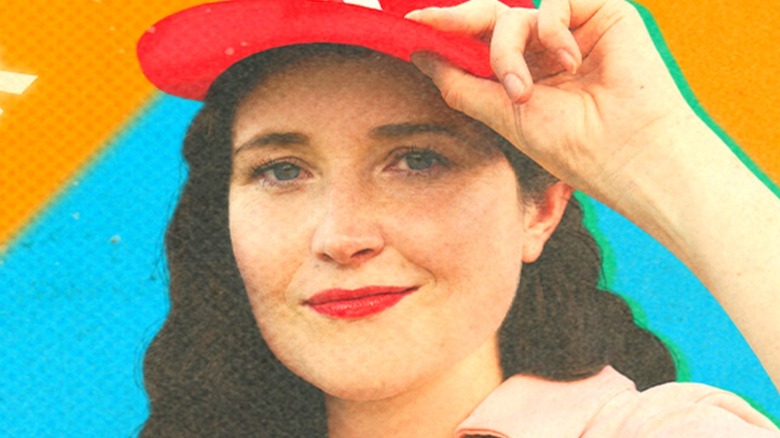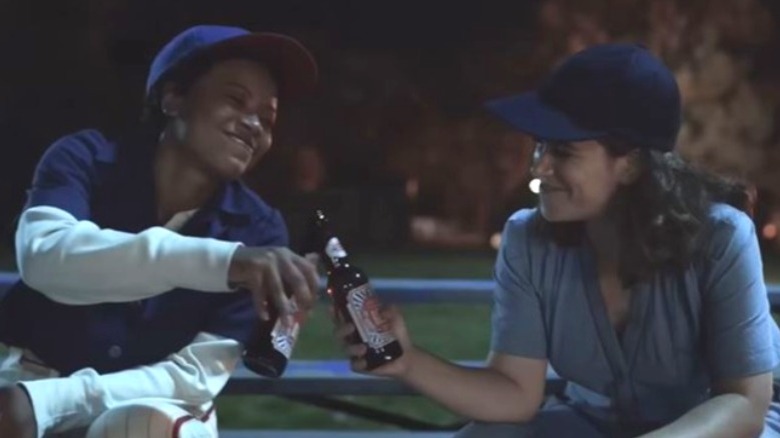How Amazon's A League Of Their Own Series Will Update Its Source Material
The 1992 classic "A League of Their Own" is being transformed into a Prime Video series, which Amazon will release in August 2022. However, this won't be your typical Hollywood reboot. "There was a much bigger story there that wasn't just about a team, but that was really about a whole generation," explains co-creator Will Graham in a new interview with Vanity Fair. "That's a big part of why we wanted to make it."
When "A League of Their Own" drops on Prime Video later this year, viewers are going to be met with a much different version of the Rockford Peaches and female baseball players that they know and love from Penny Marshall's film. For one, none of the original main characters are reportedly returning or being adapted. "There were between eight and nine hundred women who played in the AAGPBL," Graham said. "There were hundreds and hundreds and hundreds more who either weren't allowed to play or played on industrial teams or weren't in the right cities. There was just such a wealth of characters."
After taking these facts into account, Graham and the showrunners decided to take "A League of Their Own" in a much more diverse direction — here's how they plan to update the source material.
Amazon series will focus on queer characters and women of color who played baseball
When "A League of Their Own" premieres, viewers will be introduced to two main characters — Carson Shaw (Abbi Jacobson) and Maxine "Max" Chapman (Chanté Adams). Carson is an Idaho native who arrives in Chicago to try out for the Peaches. Her husband, Charlie (Patrick J. Adams), is away at war and she begins a flirtatious relationship with one of her teammates (via Vanity Fair). Max, meanwhile, is a black woman who gets turned away from the Peaches tryouts and joins a Negro League team. She is based on the real-life story of Mamie Johnson, Toni Stone, and Connie Morgan — three women who played in the Negro Leagues.
"To this day, they are the only women to ever play professional baseball on a major league level," Adams told Vanity Fair. "And yet we don't hear about them. We don't know their names. I didn't know about them until this project came to me. And so just kind of uncovering the forgotten history." Describing her Carson character, Jacobson said, "Queer people didn't just come out of the blue at Stonewall. I do think so much of the stuff we're dealing with today and the way you talk to your friends was there."
For co-creator Will Graham, who is queer, focusing on characters like Max and Carson was something near and dear to his heart once he learned of all the other stories that weren't touched upon in the original film. "That includes straight people, queer people, people of color, you know, all the people who couldn't get fit into the two-hour 1992 movie," Graham said. "I think our focus is just on telling those stories joyfully, truthfully, and in a way that resonates with the world now."

